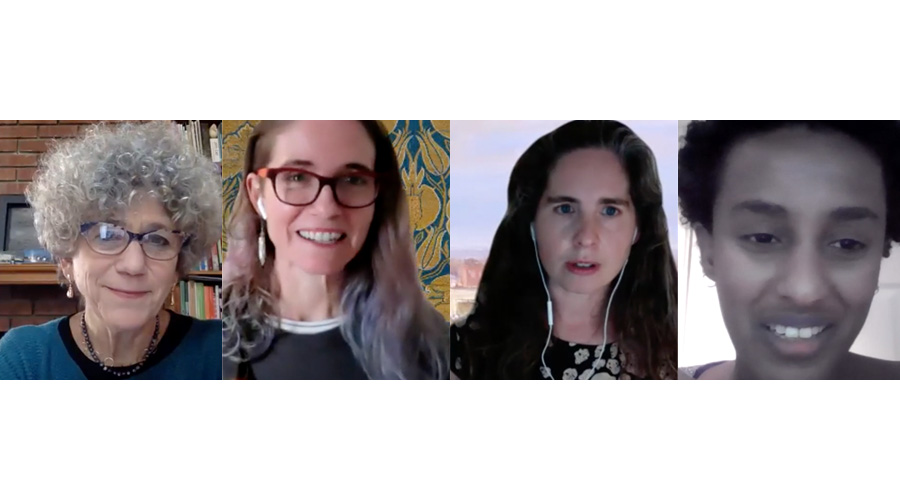Over the past 3 months, the Brown Institute hosted three lectures challenging us to think about data and computation in new ways. Each talk was by researchers outside of journalism, and there were terrific lessons from their approaches to data and computation for journalists interested in these areas. Below are recordings of the lectures by Johanna Drucker of UCLA, Catherine D’Ignazio of MIT with Lauren Klein of Emory University, and by Rediet Abebe of Harvard and Berkeley.
Local Time: A Challenge for Visualization
Johanna Drucker, UCLA
The term “local” usually suggests a specific geographical spot, but it also has applications to temporal systems—and to data visualisation. Yanni Loukissas developed the idea “local data,” to insist on connection to conditions of production. This talk takes up the concept of “local” in relation to conventions for visualizing historical chronology, time, and temporal phenomena in news, narrative, and individual human experience. The notion of “local time” conflicts with the use of uniform graphic standards such as clock time and calendar dates presented on an x-axis. Conventional timelines and chronologies need to be modified through additional approaches to visualization—as well as to the data structures behind them. Using three areas of focus—historical chronologies, experiential timelines, and narrative theory, this discussion suggests some alternative approaches for visualizing “local” time.
Data Feminism
Catherine D’Ignazio, MIT and Lauren Klein, Emory University
As data are increasingly mobilized in the service of governments and corporations, their unequal conditions of production, their asymmetrical methods of application, and their unequal effects on both individuals and groups have become increasingly difficult for data scientists–and others who rely on data in their work–to ignore. But it is precisely this power that makes it worth asking: “Data science by whom? Data science for whom? Data science with whose interests in mind? These are some of the questions that emerge from what we call data feminism, a way of thinking about data science and its communication that is informed by the past several decades of intersectional feminist activism and critical thought. Illustrating data feminism in action, this talk will show how challenges to the male/female binary can help to challenge other hierarchical (and empirically wrong) classification systems; it will explain how an understanding of emotion can expand our ideas about effective data visualization; how the concept of invisible labor can expose the significant human efforts required by our automated systems; and why the data never, ever “speak for themselves.” The goal of this talk, as with the project of data feminism, is to model how scholarship can be transformed into action: how feminist thinking can be operationalized in order to imagine more ethical and equitable data practices.
Roles for Computing In Social Justice
Rediet Abebe, Harvard and UC Berkeley
Recent scholarship in AI ethics warns that computing work has treated problematic features of the status quo as fixed, failing to address and even exacerbate deep patterns of injustice and inequality. Acknowledging these critiques, we ask: what roles, if any, can computing play to support and advance fundamental social change? We articulate four such roles — computing as a diagnostic, formalizer, rebu

